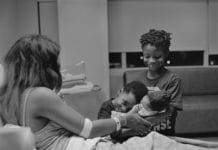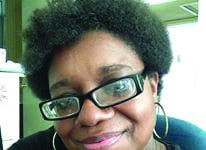
“It’s an established fact that there are children who die unnecessarily every year because they were not breastfed,” said Young, chair of the Department of Pediatrics at Howard University College of Medicine and Howard University Hospital.
The study, published in April in the journal Pediatrics, agreed. If most new moms would breastfeed their babies for the first six months of life, the new study said, it would save nearly 1,000 lives in the United States and billions of dollars each year to U.S. citizens.
On average, 911 American babies die each year from preventable causes and more than $13 billion is spent because U.S. breastfeeding rates fall far below medical recommendations, the report said.
Nearly all of the deaths, 95 percent, are attributed to three causes: sudden infant death syndrome; another disease, necrotizing enterocolitis, which is seen primarily in preterm babies in which the lining of the intestinal wall dies; and lower respiratory infections such as pneumonia, the authors of the study found.
But many mothers, particularly African-American mothers, either don’t understand the benefits of breastfeeding or have come to believe “breasts are for titillation, not lactation,” Young said.
“Young mothers need to know that there are tremendous benefits to breastfeeding that go far beyond nutrition,” she said. “It’s the immunological properties of human milk that make it so much an important part of the health of their babies.

The World Health Organization, the American College of Obstetricians and Gynecologists, the American Academy of Pediatrics, the American Academy of Family Physicians and the Centers for Disease Control and Prevention all agree that infants should be exclusively breastfed for the first six months of their lives “to achieve optimal growth and health.”
Unfortunately, Young and others said, too many African-American women have turned away from breastfeeding because of negative myths about the practice or constant media images that promote breasts almost exclusively as items of sexual pleasure and desire.
“It’s part of the culture bred into so much of what young women see that breasts are about sex, and sex alone,” Young said.
One myth is that breastfeeding causes breasts to sag, Young said.
“Pregnancy causes breasts to sag, not breastfeeding,” she said. “It’s really genetic. If your mother’s breasts sagged, then yours will too.”
There has also been a cultural bias in some parts of America against breastfeeding. In some parts of the country, it has been against the law to breastfeed in public, but the trend is reversing.
Young said she has seen more African-American women breastfeeding in recent years. When she came to Howard University Hospital in 2004, only 22 percent of the mothers breastfed. Today, about 60 percent of the mothers who deliver at the hospital breastfeed, she said.
“It’s improving, but for the health of babies, we need to get that number to 80 to 90 percent,” she said.
Dr. Young is currently associate professor of pediatrics at Howard University College of Medicine, interim chairman of the Department of Pediatrics, director of the Newborn Services at Howard University Hospital, and director of the B.L.E.S.S. (Breastfeeding Lactation Education Support Services) Initiative at Howard University Hospital. She also serves as one of the breastfeeding coordinators for the D.C. Chapter of the American Academy of Pediatrics. Dr. Young is a member of the advisory panel for the U.S. Baby Friendly Hospital Initiative.
A graduate of Howard University College of Medicine, Class of 1979, she did a rotating internship in medicine and pediatrics at Grady Memorial Hospital in Atlanta, after which she says she saw the light and decided to specialize in pediatrics. Dr. Young speaks nationally about the benefits of human milk for human infants and their families. It was her personal experience that she had learned very little about breast milk and breastfeeding at the time of the birth of her first child even though at that point she had just completed her neonatology fellowship. This experience set her on a lifelong commitment to ensure the education of health care professionals as well as lay persons about breastmilk, breastfeeding and the risks of not being breastfed.
For more information on breastfeeding, visit the D.C. Breastfeeding Coalition at dcbfc.org.

 Store
Store







